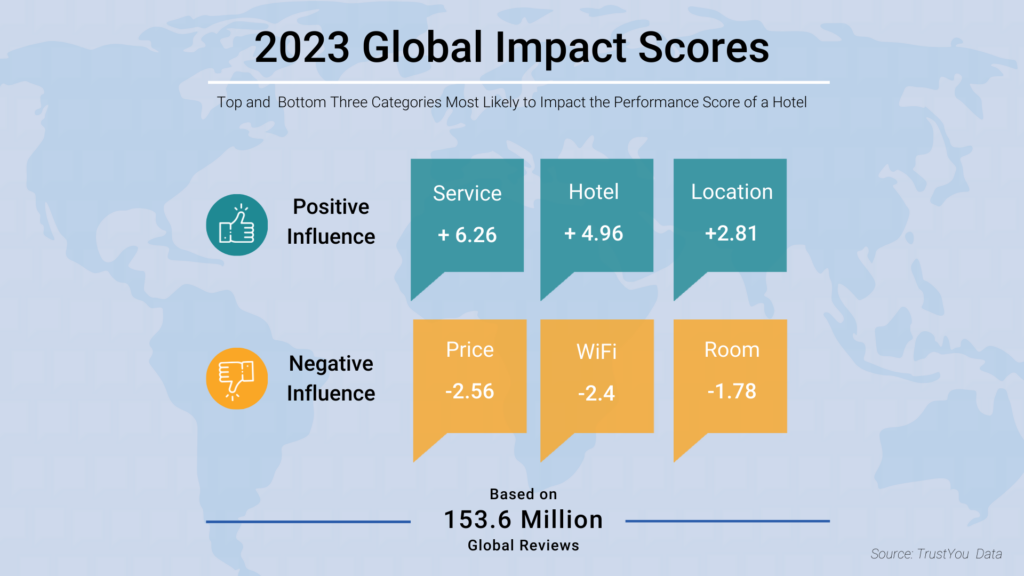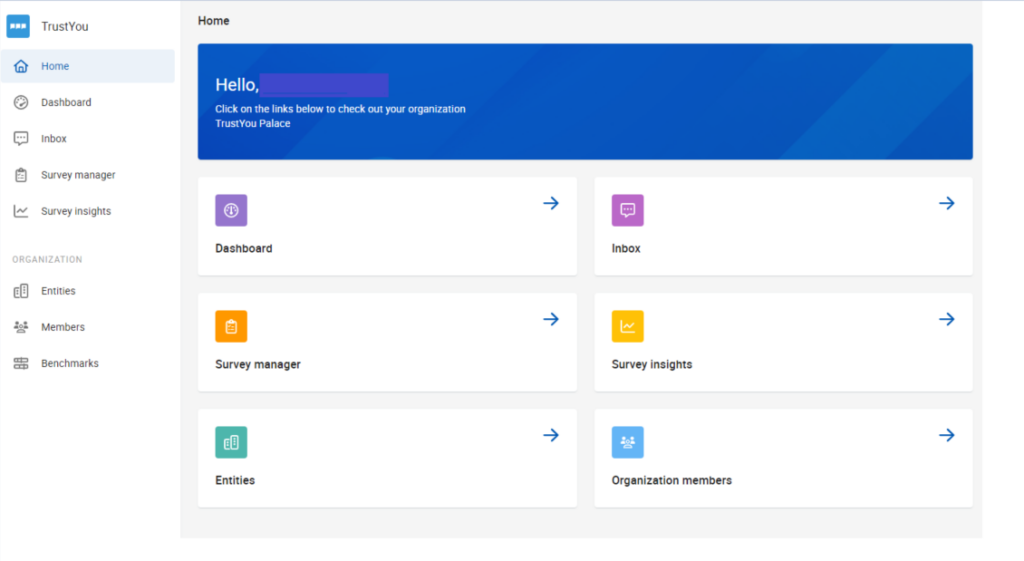In an era of personalized experiences, understanding what travelers seek in a hotel has never been more critical. Check key things that matter most for your guests, from pre-stay to post-stay.
Pre-Stay Preferences – Crafting the Ideal Journey
Engaging Modern Travelers with Cutting-Edge Booking Experiences
Booking travel has become quite complicated nowadays. Travelers want more, and their ways of booking trips keep changing.
With the rise of the internet, planning a trip has gotten trickier because there’s just too much information, often inconsistent or contradictory. This can leave travelers feeling confused and stressed.
Today’s travelers expect intuitive online and mobile booking platforms that offer ease and flexibility. If a website is slow or difficult to navigate through, people are likely to leave and look elsewhere.
Hotel websites and booking platforms have 1 to 3 seconds to keep their visitors on their websites. After this period, 1 out of 3 users will leave the website if it isn’t compelling or if the pages don’t load fast enough.
Personalizing the Pre-Stay Experience
What are travelers looking for in a hotel today that goes beyond a place to sleep? They seek experiences tailored to their preferences and needs.
For example, websites can suggest accommodations taking into account criteria used from previous bookings or additional services to make the trip as seamless as possible. Post-booking, hotels can follow up with a tailored email to suggest additional relevant services and add trip recommendations.
Travelers are now more interested than ever in receiving suggestions tailored to their needs in real-time. A recent study by Skift showed that 75% of consumers would like to receive personalized offerings on the go while booking their trip.
Using accurate information is crucial to ensure that your personalization services are hitting the right spot. Almost 8 out of 10 consumers view brands negatively if they include inaccurate personal information when interacting with them.
On-Site Expectations – Meeting and Exceeding Modern Demands
A Human Touch Across the Entire Guest Experience
Creating a positive first impression is critical for guest satisfaction. That’s why customer service and staff friendliness are crucial not only for the on-site experience but also for pre-stay and post-stay.
More than 6 out of 10 travelers are willing to pay more for 24/7 customer support throughout the entire trip. Whether talking to a human at the reception desk or via phone, consumers see this as an assurance that there is someone able to help if they encounter an issue. Service also gets the highest scores after the guests check out. Based on our analysis of more than 153.6 million guest reviews, a hotel with great service can improve its overall score by up to 6.26 points.

Efficient Check-Ins
The hotel industry increasingly relies on technology to expedite the check-in process. This includes mobile check-in options, keyless entry through apps, and personalized greetings based on guest preferences stored from previous visits. Such innovations not only streamline the process but also cater to guests who prefer less direct interaction, especially pertinent in the age of social distancing.
What Are Travelers Looking for in a Hotel Room Today?
Cleanliness is by far the most relevant information for travelers. Starting from the research process, almost 9 out of 10 travelers consider cleanliness the most important topic when reading reviews.
Other important topics for travelers, based on our recent consumer research:
- Room Amenities and Comfort Level (83%)
- Hotel Location (82%)
- Price (82%)
- Customer Service (80%)
Additionally, aesthetics and clean design play a big role in guest satisfaction. Rooms should be visually appealing but also functional, aligning with modern design trends that provide a sense of calm and space efficiency.
Enhancing the On-Site Experience with Amenities and Services
Travelers today look for hotels that offer more than just a place to stay. They value establishments that provide unique amenities and services. Some of the most sought-after features include:
- Fitness Centers: State-of-the-art gym equipment, a variety of fitness classes, and often, personalized training sessions.
- Coworking Spaces: As remote work becomes more common, hotels are adapting by providing quiet, well-equipped coworking areas.
- Local Dining Experiences: Hotels are enhancing their on-site dining by integrating local cuisine and culture, which appeals to travelers eager to experience the local flavor.
- Wellness Facilities: Spas, yoga sessions, and wellness workshops are popular, especially among travelers looking to relax and rejuvenate.
Furthermore, personalized services such as concierge availability to book local experiences, in-room dining that caters to dietary preferences, and on-demand customer service are significant factors that enhance the on-site guest experience.
Post-Stay Engagement – Fostering Lasting Relationships
What Are Travelers Looking for in a Hotel After Their Stay?
The guest experience doesn’t end at check-out. In today’s world, where loyalty is hard-won and easily lost, how hotels engage with guests after their stay can significantly impact their satisfaction and the likelihood of their return. Post-stay communication should be thoughtful and personalized, demonstrating the hotel’s commitment to guest satisfaction even after the stay has concluded.
- Thank-You Messages: A simple, personalized message thanking guests for choosing the hotel can leave a lasting positive impression. This small gesture can be paired with an invitation to provide feedback or a prompt to book their next stay at a discounted rate.
Collecting Feedback and Building Loyalty
Understanding and acting upon guest feedback is a powerful tool for continuous improvement and personalization of the guest experience.
- Feedback Analysis: Hotels should employ tools and strategies to analyze the feedback for trends and areas of improvement. This might include negative feedback that, when addressed, can greatly enhance service quality

- Loyalty Programs: Tailoring loyalty programs based on guest feedback and preferences can drive repeat bookings. Offering rewards that align with what guests value — be it a free night’s stay, room upgrades, or dining experiences — encourages them to return.
Based on a recent study by iSeatz, half of the respondents said that saving money is what they found most valuable for loyalty programs. According to the same study, 69% said they would be more interested in loyalty programs if hotels offered better discounts.
Leveraging Technology for Enhanced Post-Stay Communication
In an age dominated by digital advancements, leveraging technology can significantly improve post-stay engagement.
- Automated Personalization: Using CRM systems, hotels can automate personalized post-stay communication based on guest preferences and behaviors noted during their stay.
- Social Media Engagement: Responding to guests’ posts, mentions, or reviews on social media platforms can foster a community feel and strengthen loyalty.
A connected tech stack will enable hotels to gain valuable insights based on different data points, refining the guest experience while improving operational efficiency and maximizing profitability.
Future Trends – Anticipating What Travelers Will Look for in a Hotel Tomorrow
Looking into the future, several key trends are poised to shape the landscape of hotel stays, making them more tailored, immersive, and mindful of the world we live in. Here’s a deeper dive into these emerging trends:
- Sustainability – A Core Expectation
8 out of 10 consumers say that integrating sustainability into their travel experiences is important to them.
Sustainability has become a global imperative. The future traveler will demand more than just a passive acknowledgment of environmental issues. Hotels that implement and showcase sustainable practices will not only contribute to the preservation of the environment but will also attract a growing segment of eco-conscious guests.
Future hotels will need to embrace green technologies and sustainable operations, from solar panels and water-saving fixtures to zero-waste policies and ethical sourcing for all products.
Beyond the operational aspect, offering experiences that are eco-friendly, such as guided nature walks, conservation efforts guests can participate in, or local eco-tours, will also become crucial.
- Advanced Artificial Intelligence (AI) Integration
AI technology offers a plethora of opportunities to enhance guest experiences while making operations more efficient. Its role in future hotels will be more significant and multifaceted.
AI can analyze guest data to offer personalized recommendations, tailor services to individual preferences, and even anticipate needs before the guest articulates them.
From AI-driven chatbots that provide 24/7 customer service to smart room allocations that optimize energy use and housekeeping schedules, AI will be central to improving operational efficiency and guest satisfaction.
- Experiential Travel – The New Standard
89% of tourism providers saw a higher demand for experiential travel experiences.
Experiences over amenities are the new travel norm. As guests want to immerse themselves in the community they are visiting, hotels must look beyond their confines and offer unique and local experiences.
Partnerships with local artisans, chefs, and guides can be a great starting point for offering a glimpse into the local culture, traditions, and community.
Tailored travel experiences will become more prevalent, with guests expecting hotels to not only suggest activities but also customize them according to individual interests and preferences.
- Technology and Connectivity
As technology continues to evolve, so too will the expectations of tech-savvy travelers for seamless connectivity and cutting-edge tech throughout their stay.
High-speed, reliable Wi-Fi is just the beginning. Future hotels will need to ensure seamless digital integration, allowing guests to control every aspect of their stay from their personal devices.
With the rise of streaming services and immersive technologies, guests will expect more than a standard TV in their rooms. Augmented reality (AR) experiences, virtual reality (VR) explorations of local attractions, and in-room streaming services customized to guest preferences will become standard offerings.
As we look towards the future, hotels that anticipate and adapt to these trends will not only thrive but also define the next era of hospitality. Embracing sustainability, AI, personalized experiential travel, and advanced technology will ensure hotels remain competitive and appealing to the travelers of tomorrow.
Conclusion
Making customers happy has become increasingly difficult in the current hospitality landscape. Hotels and other travel providers face incredibly strong competition on one side and guests who are continuously raising the standards on the other.
From research to post-stay, consumers are now expecting a smooth travel experience with tailored services for their needs.
To excel in this fast-evolving industry, data insights are crucial to understanding and predicting travelers’ needs and offering personalized and innovative experiences. A strategic use of technology, as well as genuine customer engagement, will help your hotel offer exactly what travelers are looking for a perfect stay.